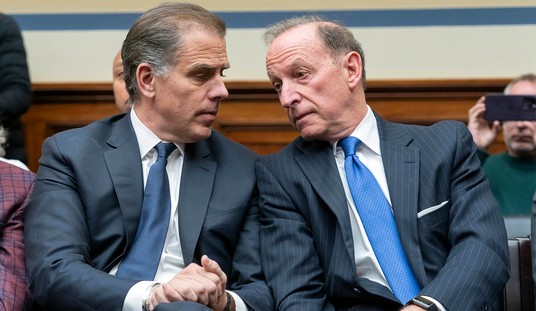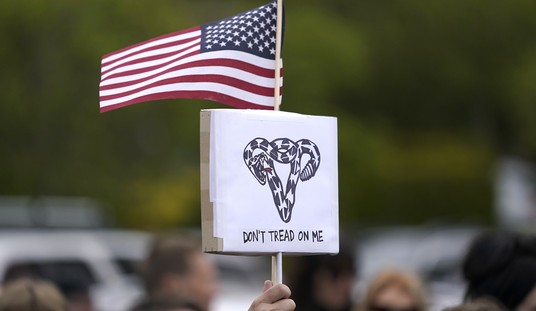A respectful and prolonged discussion between atheists and believers about truth and faith is the focus of a brilliant new book by noted author and theologian Michael Novak.
I first got to know Ambassador Novak through my work at the United Nations, as we both served as U.S. Representative to the Human Rights Commission. He is a leading Catholic theologian and Templeton Prize laureate who currently serves as a scholar at the American Enterprise Institute. His latest book, No One Sees God: The Dark Night of Atheists and Believers, is both personal and very timely to the current religious debates.
In the book, Mr. Novak discusses faith and compassionately engages, with great charity and respect, the new atheist movement. This is a movement led by authors such as Richard Dawkins, Dan Dennett, and Christopher Hitchens. From my readings of their work, the answers they give to metaphysical questions are frequently lacking and often consist only of mean-spirited insults hurled at the reportedly 92% of us who believe in God. Mr. Novak, however, sees the positive in the popularity of these anti-religion books, as they challenge believers to question and carefully exam their own faith.
As the late Pope John Paul II wrote in a 1999 encyclical, "Faith and reason are like two wings on which the human spirit rises to contemplation of the truth." Taking this insightful truism to heart, Mr. Novak shines a light on the common darkness experienced by both Christians and atheists in their lives, as even the most devout believer never fully witnesses a God who exists on a far greater frequency than human senses can detect.
Modern atheists, with their supposed adherence to the ideals of the Enlightenment and scientific inquiry, can be surprisingly irrational in their suggestion that all we see on earth, from simplest forms of life to the greatest products of human intellect, is out of total randomness and is therefore without meaning or purpose.
Recommended
Mr. Novak correctly understands, as did many of America's founders, that it is divine providence from which freedom and civilized society flow. And for any faults one may find with Christian regimes throughout history, they pale in comparison to the abhorrent atrocities of the dogmatically atheists regimes of China and the former Soviet Union. Without the guiding moral compass that faith provides, those regimes slaughtered millions. And modern society, without a Judeo-Christian ethics, would have little reason to oppose, for example, to the despicable eugenics movement as espoused by Planned Parenthood founder Margaret Sanger.
Mr. Novak proclaims that those who claim to adhere to science and reason owe a great deal of gratitude to the Christian church, as it is the home of the scientific method. And great scientists such as Johannes Kepler, Isaac Newton, and Albert Einstein were anything but atheists. In fact, Einstein once described atheists as "creatures who-in their grudge against traditional religion as the 'opium of the masses' cannot hear the music of the spheres." Mr. Novak poignantly states new atheists do not seem to accept that a vast majority of intelligent, highly-educated people are quite religious.
As a former mayor and statewide elected officeholder in my home state of Ohio, I have long fought against those who seek to force God and faith out of the public square. On this point, Mr. Novak's keen insight on the essence of religious liberty provides the book's most in-depth and scholarly analysis.
Influential English writer and Catholic apologist G.K. Chesterton once opined that "Religious liberty might be supposed to mean that everybody is free to discuss religion. But in practice, it means that hardly anybody is allowed to mention it." This is clearly the intention of the ACLU and other anti-religious campaigners, who file lawsuits at the mere mention of Christmas in our public schools or the sight of a courthouse daring to display the 10 Commandments.
Mr. Novak reclaims the term "secular" as a word invented by Christians to describe, at the same time a barrier against secular totalitarian governments and a barrier against church officials controlling government. The term in is rooted in, "Give to Caesar what is Caesar's, and to God what is God's." This sort of separation in defense of religious liberty is quite different from modern secularists who seek to keep the public square religion-free.
Mr. Novak rightly contends it is unfair to ask citizens to divorce themselves from ethics and principles derived from religious convictions. He is right and his book is a homerun.

























Join the conversation as a VIP Member